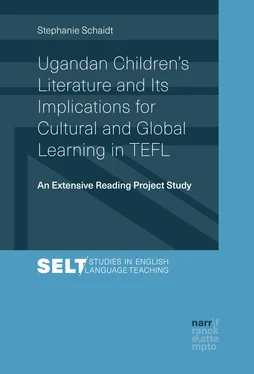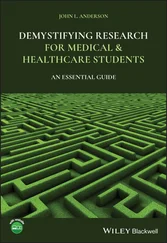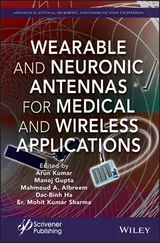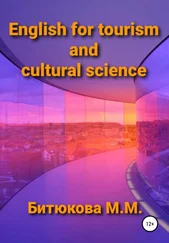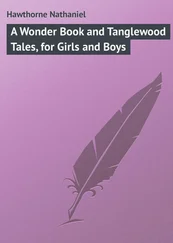Stephanie Schaidt
Ugandan Children's Literature and its Implications for Cultural and Global Learning
An Extensive Reading Project Study
Narr Francke Attempto Verlag Tübingen
[bad img format]
© 2018 • Narr Francke Attempto Verlag GmbH + Co. KG
Dischingerweg 5 • D-72070 Tübingen
www.francke.de• info@francke.de
Das Werk einschließlich aller seiner Teile ist urheberrechtlich geschützt. Jede Verwertung außerhalb der engen Grenzen des Urheberrechtsgesetzes ist ohne Zustimmung des Verlages unzulässig und strafbar. Das gilt insbesondere für Vervielfältigungen, Übersetzungen, Mikroverfilmungen und die Einspeicherung und Verarbeitung in elektronischen Systemen.
E-Book-Produktion: pagina GmbH, Tübingen
ePub-ISBN 978-3-8233-0053-3
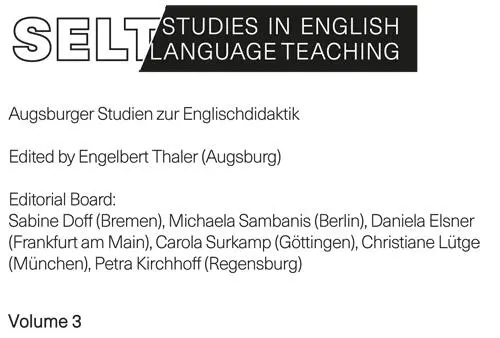
Firstly, I would like to express my sincere gratitude to my supervisor Prof. Dr. Engelbert Thaler for his continuous support and encouragement. Prof. Dr. Thaler has constantly provided an open door, offered insightful suggestions and endorsed my academic development. I am also very grateful to Prof. Dr. Christiane Fäcke for her valuable feedback and advice throughout the project. With her inestimable comments and questions she has repeatedly encouraged me to think further. Furthermore, I would like to acknowledge the important contributions of Prof. Dr. Katja Sarkowsky who has supervised my Zulassungsarbeit für das Staatsexamen [final thesis for student teachers at university in Germany] on Ugandan post-independence literature and offered valuable suggestions also for the present study. Further thanks go to Prof. Dr. Hubert Zapf as the third member of my dissertation committee for his time and thoughtful comments.
My gratitude is also directed to all colleagues in the Fremdsprachendidaktisches Forschungskolloquium [research colloquium of foreign language didactics] of Augsburg University and their thought-provoking impulses in discussions in Augsburg, Salzburg and Frauenwörth . Particular thanks go to my friends Dr. Parnaz Kianiparsa and Dr. Sara Vali for making themselves available as interraters in this project and always providing assistance and support. Furthermore, I am especially indebted to my friend Stephanie Bajor who always had an open ear and generously offered her opinions throughout this project.
I owe deep gratitude to the two English teachers and head teachers of the schools I conducted my study in and all the students participating in this research. Without their readiness to participate and their engaged involvement in the study, this project could not have been realised.
In addition, I want to thank all those who made my study stay in Uganda an enlightening and memorable experience: I am indebted to Augsburg University for granting me a scholarship, to the Ugandan writers I interviewed, i.e. Doreen Baingana, Violet Barungi, Beatrice Lamwaka, Dr. Aaron Mushengyezi, Glaydah Namukasa, Julius Ocwinyo, Oscar Ranzo, Rose Rwakasisi, for their readiness to answer my questions, and to the teachers and students at different schools in Uganda for sharing their experiences with Ugandan children’s fiction. Particular thanks go to Mrs Evangeline Barongo, the chair-person of UCWIA, for her great support during my stay in Uganda. Furthermore, I want to thank my many friends in Uganda who provide me with a home away from home whenever I visit.
I also want to extend thanks to Mr Robert Raabe for proofreading the whole work, the Graduate School GGS of Augsburg University for providing a support network and offering many interesting courses, Prof. Dr. Mehlhorn and Prof. Dr. Schramm and the participants of the DGFF Summer School 2014 for thought-provoking impulses. My gratitude also goes to colleagues in the field of Didactics of History, Miriam Hannig and Philipp Bernhard, for giving valuable ideas for this project from yet another perspective. Furthermore, I would like to acknowledge my sincere gratitude to VG Wort for its invaluable help in financing this work.
Finally, I am indebted to my family and friends (you know who you are), who have always supported me in my endeavours. Particular thanks go to my sister Katharina who has diligently read the complete draft of this thesis and provided me with insightful suggestions.
To my parents Helga and Klaus
The single story creates a stereotype and the problem with stereotypes is not that they are untrue but that they are incomplete. They make a story become the only story.
Chimamanda Ngozi Adichie1
In the face of fears which are time and again raised in parts of the population that their culture could be diluted by aspects of incoming ‘foreign’ cultures, it seems indispensable to place a strong focus in German education on cultural and global learning. As language and culture are considered to be closely interrelated and it is assumed that one may not be taught without the other (Byram, 1998; Kramsch, 1998; Risager, 2007), the foreign language classroom plays a special role in this respect.
Culture is an ambiguous term and quite difficult to capture. Over the last centuries, very many different understandings of culture have developed and in the present time various concepts of culture(s) also coexist. The normative concept of culture as high-culture only that evolved in the 19 thcentury has been largely replaced today by a functional-dynamic understanding of culture. Nevertheless, static concepts of culture continue to be drawn on. Herder’s (1967) understanding of cultures as separate, homogeneous islands or spheres that are ethnically consolidated has been questioned and declared obsolete (e.g. Welsch, 2010) but it has also been taken up by other scholars (e.g. Huntington, 1998). Racist and xenophobic lines of argument repeatedly utilise a static concept of culture to justify marginalisation and exclusion. Increasingly, however, scholars also point to concepts such as hybridity (Bhabha, 1990, 1994) and transculturality (Welsch, 1994, 1995, 1999, 2010) and perceive culture as a text or discourse.
Discussions on cultural learning have already formed an integral part of pedagogy and foreign language didactics in Germany for many years. In the last two centuries, influenced by neighbouring disciplines, cultural learning in the foreign language classroom has gone through various changes. With the widening of the concept of culture, the didactic approach to teaching and learning about cultural aspects has also broadened. Approaches that focus on culture as monolithic entities such as many Landeskunde [regional studies] approaches and Fremdverstehen [understanding of the other] have been replaced or complemented by approaches that take processes of meaning creation between representatives of different cultures (intercultural learning) and blurrings and transgressions of boundaries (transcultural learning) or global topics (global education) into account.
Fiction has been assigned a particular potential in the context of cultural and global learning. In the 1990s, scholars of the Graduate School “Understanding Otherness” in Gießen, for example, researched widely on Fremdverstehen in literary didactics (Bredella & Christ, 1995; Christ & Legutke, 1996), and since the new millennium important impulses have also been provided by reference to postmodern and postcolonial discourses (Alter, 2015; Fäcke, 2006; Freitag-Hild 2010; Hallet, 2002, 2007).
Much of the research that has been done in the field is located at a theoretical level. Up to today, only few studies have looked into cultural learning with literary texts empirically (see for example Burwitz-Melzer, 2003; Fäcke, 2006; Freitag-Hild, 2010). Particularly lower and intermediate grades of secondary education remain largely unresearched. What Burwitz-Melzer lamented at the beginning of the twenty-first century, is still true today:
Читать дальше
